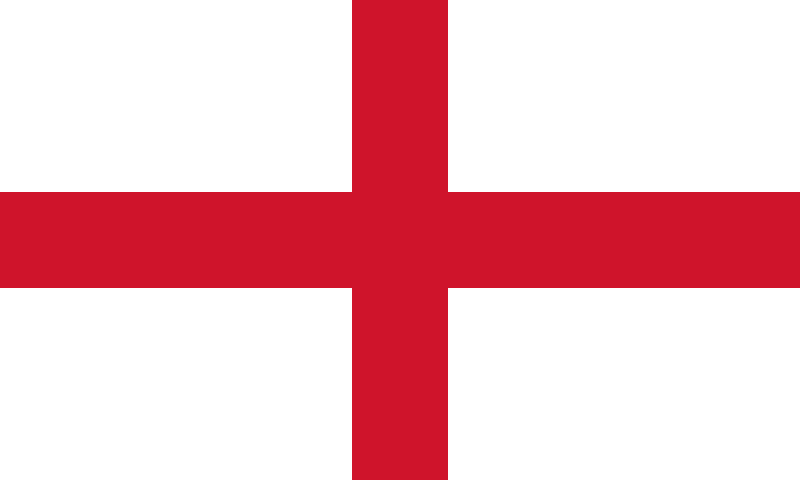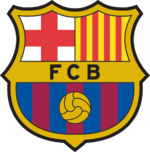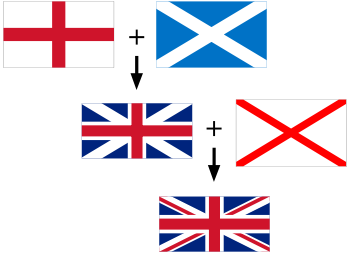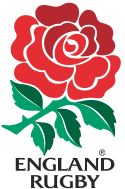Allez, pleurez comme des femmes ce que vous n'avez pas su gagner comme des hommes.
samedi 13 octobre 2007
samedi 13 octobre 2007
Pensée du soir
Ce billet, écrit à 23:12 par Eolas dans la catégorie Ovalie a suscité :
Devine qui vient dîner ce soir ?

Voici donc le drapeau anglais, dit drapeau de Saint George. Il vous dira sans doute quelque chose : il rappelle en effet celui de la Géorgie, que nous affrontâmes il y a peu.
La croix rouge sur fond blanc est un emblême très répandu dans la chrétienté, Saint Georges étant le Saint Patron, outre de l'Angleterre et de la Géorgie, de l'Aragon, de la Catalogne, du Canada, de l'Ethiopie, de la Grèce, de la Serbie et du Montenegro, du Portugal, de la Russie et même de la Palestine, ainsi que des villes de Beyrouth, Barcelone ou Moscou. C'est ainsi que le symbole du club de footabll de Barcelone, le fameux Barça, comporte la croix de Saint George.

Ce symbole remonte aux Croisades, où il était le symbole des chevaliers et soldats français, le pape ayant décidé que les anglais porteraient une croix blanche sur fond rouge, les germains ayant une croix bleue et jaune, devenue le drapeau suédois. Les Anglais ont néanmoins adopté le croix rouge sur fond blanc, et la croix de St George est ainsi devenue le symbole des croisés dans leur ensemble, étant à son tour adoptée par les Templiers. Lors de la Réforme, tous les drapeauxs représentant des saints ont été abandonnés en Angleterre à l'exception de celui de St George. Dans la Navy, le drapeau de Saint Georges indique un navire amiral.
Le drapeau du Royaume Uni s'appelle le drapeau de l'Union, ou Union Jack dans la marine ("Jack" indiquant un pavillon de marine), car il est composé de la réunion des drapeaux des trois couronnes réunies sur la tête des rois d'Angleterre, chacun représenté par une croix liée à un saint : la croix de Saint George pour l'Angleterre, la croix de Saint André pour l'Ecosse, et la croix de Saint Patrick pour l'Irlande. Cette union s'est faite en deux temps : en 1606, quand James VI d'Ecosse devient roi d'Angleterre sous le nom de James Ier, les croix de Saint George et Saint André sont réunies
 pour faire le premier drapeau d'Union. Puis en 1801, la croix de Saint
Patrick est ajoutée quand l'Acte d'Union (Acte
désignant
une loi) fusionne les royaumes d'Angleterre, d'Ecosse et d'Irlande pour
former le Royaume Uni, dénomination encore officielle de nos
voisins d'Outre Manche. Le pays de Galles n'est pas
représenté dans ce drapeau car il ne s'agit pas
d'un
royaume mais d'une principauté, dirigée par les
héritiers du trône d'Angleterre (actuellement le
Prince
Charles, Prince de Galles, le titre de princesse étant
vacant
nonobstant le second mariage du prince).
pour faire le premier drapeau d'Union. Puis en 1801, la croix de Saint
Patrick est ajoutée quand l'Acte d'Union (Acte
désignant
une loi) fusionne les royaumes d'Angleterre, d'Ecosse et d'Irlande pour
former le Royaume Uni, dénomination encore officielle de nos
voisins d'Outre Manche. Le pays de Galles n'est pas
représenté dans ce drapeau car il ne s'agit pas
d'un
royaume mais d'une principauté, dirigée par les
héritiers du trône d'Angleterre (actuellement le
Prince
Charles, Prince de Galles, le titre de princesse étant
vacant
nonobstant le second mariage du prince).L'équipe joue ainsi isolément car le Royaume Uni n'a pas de fédération de rugby. A la place, chaque royaume a sa propre fédération, reconnue par l'IRB. Il en va de même au football, d'où les matchs de qualification pour l'Euro 2008 contre l'Ecosse.
Le symbole du XV d'Angleterre est la rose rouge.
 Il
s'agit d'une allusion à la rose rouge des Lancastre, famille
opposée à celle d'York au cours de la guerre des
Rose,
qui aboutit à la chute de la maison des
Plantagenêts, dont
Lancastre et York étaient deux branches, au profit de la
maison
des Tudor. Je ne crois pas que la fédération
anglaise
prête allégance à la maison des
Lancastre cinq cent
ans après la fin du conflit, mais le maillot de
l'équipe
d'Angleterre étant blanc (couleur royale, comme le maillot
du
Real Madrid, que je me devais de citer ayant mentionné le
Barça afin d'éviter une autre guerre civile), une
rose
blanche ou la rose des Tudor (rouge et blanche pour marquer la
réconcilation du royaume) serait peu visible sur le maillot.
Il
s'agit d'une allusion à la rose rouge des Lancastre, famille
opposée à celle d'York au cours de la guerre des
Rose,
qui aboutit à la chute de la maison des
Plantagenêts, dont
Lancastre et York étaient deux branches, au profit de la
maison
des Tudor. Je ne crois pas que la fédération
anglaise
prête allégance à la maison des
Lancastre cinq cent
ans après la fin du conflit, mais le maillot de
l'équipe
d'Angleterre étant blanc (couleur royale, comme le maillot
du
Real Madrid, que je me devais de citer ayant mentionné le
Barça afin d'éviter une autre guerre civile), une
rose
blanche ou la rose des Tudor (rouge et blanche pour marquer la
réconcilation du royaume) serait peu visible sur le maillot.L'Angleterre n'ayant pas d'hymne officiel propre, c'est bien le God Save The Queen qu'entonne le XV d'Angleterre, qui est pourtant l'hymne du Royaume Uni. Une scène fort cocasse a lieu quand l'Angleterre joue contre l'Ecosse à Murrayfield, quand l'hymne (lui aussi non officiel) écossais, Flower Of Scotland, est entonné, car on voit la Princesse Anne, fille de la reine Elisabeth et Duchesse d'Edimbourg, chanter de bon coeur cet hymne nationaliste célébrant la victoire des Ecossais contre les Anglais à Bannockburn en 1314 (la bataille qui clôt le film Braveheart). Au Royaume Uni, le pragmatisme est la vraie religion d'Etat.
Mais en réalité, le XV à la rose a un hymne non officiel, qui galvanise autant les Anglais qu'une Marseillaise fait oublier la fatigue aux Français. Priez, mes amis, priez pour ne point entendre résonner cet hymne païen (même si c'est un gospel) près de la basilique qui accueillit l'Oriflamme...
Le Swing Low, Sweet Chariot, la kryptonite universelle.
Swing low, sweet chariot
Coming for to carry me home
Swing low, sweet chariot
Coming for to carry me home
L'histoire de cette chanson se confond avec l'histoire de notre vieille rivalité rugbystique qui nous oppose à nos cousins d'Outre Manche. En fait, une vieille rivalité oppose l'Angleterre à un peu tout le monde, et c'est une des équipes les plus cordialement détestées, chacune de ses (trop rares) défaites étant savourée d'un hémisphère à l'autre, mais la France jouit d'une position de détestation cordiale privilégiée.
Tout d'abord, l'Angleterre n'a accueilli la France dans le concert des nations rugbystiques qu'avec réticence en 1910. Le sport de l'aristocratie anglaise était en France pratiquée par les paysans rugueux du sud, et l'Anglais n'aimait guère se mélanger. Il faut dire qu'au début, la France a tout fait pour lui donner raison. En 1913, la foule envahit le terrain pour assommer l'arbitre de France-Ecosse. La France est exclue du tournoi, mais sauvée si j'ose dire par la première guerre mondiale qui suspend le tournoi, qui reprend en 1918 toutes rancoeurs oubliées au nom de la fraternité d'armes. En 1927, c'est la première victoire contre les Anglais (le pays de Galles résistera jusqu'en 1948). En 1931, la France est à nouveau exclue pour son comportement violent jusqu'en 1939. En fait, deuxième guerre mondiale oblige, la suspension durera jusqu'à la reprise du tournoi en 1947. En 1952, l'Angleterre accuse la France de professionnalisme des joueurs (ironie de l'histoire, l'Angleterre sera la première à passer au professionnalisme dans les années 90 : en Angleterre, le pragmatisme est religion d'Etat) et des joueurs français sont définitivement exclus de la sélection pour apaiser les Anglais. Voilà donc le terreau de la rivalité. La fleur éclora à la fin des années 80.
En 1988, le XV d'Angleterre était en train de traverser une des plus mauvaises passes de son histoire, battu notamment par la France plusieurs années de suite, y compris sur son sol sacré, à Twickenham. L'Angleterre jouait face à l'Irlande, et avait perdu 15 de ses 23 derniers matchs du Tournoi des Cinq Nations, tournoi qu'elle n'avait plus gagné depuis 1980. En deux ans et demi, les supporters de Twickenham n'avaient vu qu'un seul misérable essai marqué par les Anglais. A la mi temps, l'Irlande menait 3 à 0. Et puis comme cela arrive parfois au rugby, l'espoir changea de camp, le combat changea d'âme, et tout à coup, rien ne semblait plus pouvoir arrêter les Anglais, qui gagnèrent 35 à 3, dont trois essais marqués par Chris Oti, qui faisait ses débuts de jour là. Les collégiens d'une école bénédictine de Woolhampton qui assistaient au match entonnèrent alors un gospel en l'honneur d'Oti, Swing Low, Sweet Chariot, que la foule reprit en choeur.
Ce fut le signal d'une résurrection, et d'un nouvel âge d'or pour le XV à la rose, l'époque de Will Carling et Brian Moore, époque qui se construisit sur le dos de l'équipe de France. Pendant sept ans, nous ne gagnerons jamais, et toujours pour la même raison : être poussé à la faute par les Anglais, de préférence à 20 mètres en face de nos poteaux, ce qui donnait trois points aux Anglais, et faisait résonner le Swing Low. Le clou était enfoncé par Will Carling qui félicitait les Français vaincus d'un "Good game" dont l'évocation fait encore monter les larmes aux yeux des joueurs de l'époque. Il faudra des années pour que le XV de France vole aux Anglais leur sang froid, ce qui rend l'absence totale de faute française lors de la deuxième mi temps du dernier match absolument extraordinaire. La tension avec l'Angleterre sera à son comble, et les mêlées sont les occasions "d'explications" qui n'ont pas toujours fait honneur aux valeurs du rugby.
Cette rivalité prendra fin brutalement, du jour au lendemain, lors de notre inoubliable victoire en petite finale de la coupe du Monde en 1995 (19 à 9), où enfin, la série noire prendra fin, et au plus beau moment, la Coupe du Monde. Les joueurs Français sont tous allés serrer la main de Will Carling abattu en lui disant un "Good game !" chantant avec l'accent du sud ouest. La partie s'est en réalité terminée le lendemain à l'aube, les joueurs des deux équipes s'étant donné rendez vous pour faire une fête de tous les diables jusqu'à l'aube, enterrant définitivement la hache de guerre. Cela sera aidé par le virage vers le professionalisme, des Anglais venant jouer en France et des Français allant jouer en Angleterre (Raphaël Ibanez, capitaine du XVde France joue dans le club londonien des Wasps, et Sébastien Chabal joue dans le club de Sale, près de Manchester), ce qui comblera un peu le fossé d'incompréhension, les Anglais allant jusqu'à recruter un entraîneur français, Pierre Villepreux en 1995.
Cette époque a laissé une tradition, une rivalité qui fait que vaincre l'autre équipe est un plaisir sans nul pareil, mais la terrible tension 1988-1993 a disparu. On la rejoue pour s'amuser. Il n'empêche : arriver en finale en piétinant les Anglais serait une coupe d'ambroisie. Aller, comme en 2003, jouer la petite finale parce que les Anglais nous auront barré la route serait une coupe de vinaigre. Et j'ai soif.
Alors, plus que jamais... ALLEZ LES BLEUS ! ! !
Our Australian friends having unexpectedly defected, prepare the plum pudding, the porridge, the jelly and have the Marmite® ready. Our worst friends, or best enemies, as you wish, are coming to town tonight : the dreadful, proud and deceptive England. What a joy to see her !
Here is the English flag, also called the Saint George flag. He may remind you of something : he looks quite like Georgia's flag, the country we recently met.
The red cross on a white field is a very common symbol in the Christianity, Saint George being the holy patron, beside England and Georgia, of Aragon, Catalonia, Canada, Ethiopia, Greece, Serbia, Montenegro, Portugal, Russia, even Palestine, as of the cities of Bayreuth, Barcelona or Moscow. This is why St George's cross is part of the Barcelona's Football Club's crest.
This coat of arms dates from the Crusades, where it was the symbol of French knights and soldiers, the pope having given them this symbol, the symbol given to the English, a white cross over a red field, and a yellow cross over a blue field for the Germans (which has become the Swedish flag). Nevertheless, the Englishmen took the red cross as their symbol, and St George's cross became the symbol of all crusaders, and later of the Templar knights. During the Reformation, England abandoned all the flags symbolizing saints, except St George's. In the Navy, The flag of St George is the rank flag of an Admiral.
The flag of United Kingdom is the Union flag, or Union Jack in the Royal Navy, as it is composed of the flags of the three crowns united above the head of the kings of England, each kingdom represented by a cross representing a saint: St George's cross for England, St Andre's for Scotland and St Patrick's for the Ireland. This union was made in two times: in 1606, when James VI became king of England under the name of James I, the cross of St George and St Andre were merged into the first Union flag. In 1801, the cross of St Patrick was added by the Act of Union 1801, merging the kingdom of England, Scotland and Ireland into the United Kingdom.Wales is not represented in the flag as it is not a kingdom but a principality, led by the heir to the throne (now Prince Charles, the princess title being vacant even after the second marriage of Prince Charles).
England's team plays alone because the United Kingdom has no Rugby Football Union. Instead, each kingdom has its own Union, part of the IRB. It is the same in football, this is why we had recently qualifying games against Scotland.
The English Rugby Union team symbol is the red rose. It alludes to the red Lancaster rose, the family who opposed the York Family during the War of the Roses, which led to the downfall of Plantagenet house, whom both Lancaster and York family descended, and the rise of Tudor house. I don't think the Rugby Football Union pays allegiance to the Lancaster 500 years after the end of the conflict; but the team's shirt being white, the royal color, as is the Real Madrid shirt (I HAD to talk about the Real,as I mentioned the Barça, to avoid another civil war) a white rose or the Tudor's Rose would not have been visible.
England has no hymn of its own, and so the team will sing 'God Save The Queen', although it is United Kingdom's anthem. One funny scene happens each time England plays at Murrayfield as Scotland's unofficial anthem 'Flower of Scotland' is played : Princess Ann, daughter of the queen and Duchess of Edinburgh sings wholeheartedly this song glorifying Scotland's victory at Bannockburn in 1314 (the Battle ending Braveheart). In United Kingdom, pragmatism is the real State religion.
But indeed England as an unofficial anthem, which strengthens the English just as a Marseillaise makes the French forget exhaustion. Pray, O my friends, pray not to hear this heathen song (event though it is a gospel) near the Basilica which use to hold the Oriflamme, Kings of France's warflag...
The Swing Low, Sweet Chariot, the universal kryptonit.
Swing low, sweet chariot
Coming for to carry me home
Swing low, sweet chariot
Coming for to carry me home
The story of this songs is also the story of our long rivalry with our cousins from the other side of the Channel (this twenty-miles wide and thousand-year deep chasm...). As a matter of fact, and old rivalry opposes England to the whole world, and it is the most cheerfully hated team, each of his (too rare) defeats being appreciated from one hemisphere to the other, but France enjoys a cheerfully hatred privileged position.
First, England only reluctantly accepted France amongst the rugby nations in 1910. The English aristocracy sport was played in France by the tough southern peasants, and the English would not mix. We must admit that at first, French made their best to show them how right they were. In 1913, the crowd assaults the referee of France vs Scotland. France is banished from the 5 nations championship, but the Great war prevent it, and when the championship is resumed in 1918, all is forgotten because of the brotherhood of war. In 1927, it's the first victory against England (Wales will resist until 1948). In 1931, France is again banished for violence until 1939. In fact, it will be until 1947, when the championship is resumed after World War II. In 1952, England accuses French player of professionalism (which is ironic as England will be the first to become professional in 1995; In United Kingdom, pragmatism is the real State religion) and French players must be forever banned to appease the English. Here is the soil of the rivalry. The flower will blossom at the end of the 80's.
In 1988, England's team was having one of the most difficult time of its existence, beaten by France several years in a row, including on its Holy Ground, Twickenham. England was playing Ireland, had lost 15 of its 23 previous games, hadn't won a Championship since 1980, in in two and a half years, Twickenham's crowd had only seen one try. At halftime, Ireland was leading 3-0. And as it sometimes happens in the events of history, hope changed of side, the fight changed its soul, and nothing seemed to be able to stop the Englishmen, who ended winning 35-3, inclunding ding three tries by first-selected Chris Oti. A choir from Wollhampton public school, in the audience, began singing a gospel to honor Oti, Swing Low Sweet Chariot. The whole crowd joined in.
This was the signal of a resurrection and of a new golden age for English team, the time of Will Carling and Brian Moore, all at France's expense. For seven years, we will never win, and always for the same reason: driven to foul play, and if possible 20 yard from our posts, full front, giving three cheap points to the English, and making the Swing Low sound. Our coffin was closed by Will Carling congratulating the defeated players by a "Good game!" whose sole souvenir still drives these players to tears today. That's what makes France total absence of penalty during the second half of the game against the All Black a feat. Tension with England was at its high, and the scrum was the place for conducts which did not precisely belonged to the values of rugby.
This rivalry ended abruptly, in one night, during our unforgettable victory during the third place match at 1995 world cup (19 - 9). French players all went to shake hands with Will Carling to tell him "Good game!". Actually, the match ended later that night, the players of both team having joined for a party which ended at dawn, and ended this rivalry. It was also helped by the professionalism era, which saw French players going to England, and English to France. Raphael Ibanez, France's captain, plays at the London Wasps, and Sebastien Chabal at Sale Sharks. English even hired a French coach in 1995, Pierre Villepreux.
This time has left a tradition, a will to win that makes a victory special, but the terrible tension of 1988-1995 has ended. But nevertheless : reaching final by winning the English would be a treat. Going, like in 2003, to the small final would be a spoonful of vinegar. And I'm thirsty
So, more than ever... ALLEZ LES BLEUS ! ! !
Ce billet, écrit à 00:05 par Eolas dans la catégorie Ovalie a suscité :